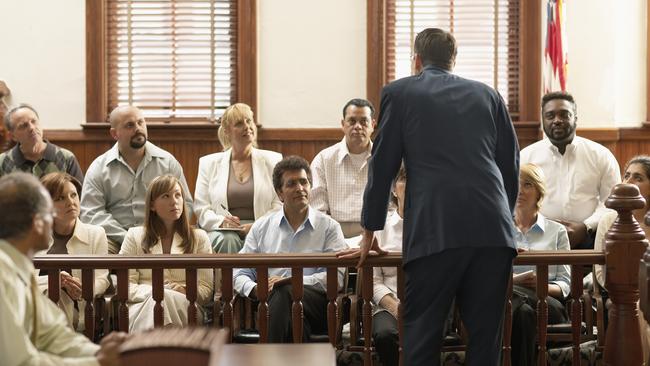‘Biased juries must be set right on rape’, judges told
Juries in rape trials can carry false assumptions about sexual consent, a new handbook for judges, police and lawyers says.

Juries in rape trials can carry false assumptions about sexual consent, a new handbook for judges, police and lawyers says, encouraging the judiciary to issue “strong” directions to jurors to counter rape myths relating to the credibility of a complainant.
The guide, published by the Australian Institute of Family Studies at the behest of Mark Dreyfus and the Standing Council of Attorneys-General, says “societal misunderstandings” of sexual assault have led to a justice system where “inappropriate stereotypes” can impact the outcome of cases. It also urges judges to utilise laws that allow them to direct juries not to disparage the credibility of a complainant who does not report an alleged rape immediately after the incident.
“False assumptions and stereotypes about sexual assault can filter into the criminal justice system. This may be due to personal biases and attitudes or community beliefs that are brought into the system – for example, by jurors who may attach ‘moralistic’ relevance to stereotypical facts,” the handbook reads.
“It may also be due to systemic factors – for example, if legal culture or practice stemming from the nature of the adversarial system focuses on stereotypical facts and/or is influenced by the legacy of historical laws in relation to defences, burdens of proof, evidence or procedures.”
The guide comes as courts experience tension over the treatment of sexual assault cases, with the ACT Chief Justice last month claiming “culture wars” could be leading to the acquittal of accused rapists, and saying she does not understand why jurors “find it so hard to believe” complainants.
The Australian Law Reform Commission is carrying out a review of justice responses to sexual violence, and is set to release a final report in late January.
A review into rape laws commissioned by the Albanese government and released in October praised a shift towards affirmative-consent models that require less scrutiny of complainants in courts, and lead to greater prosecutions of nuanced sexual violence cases.
But in NSW, some rape prosecutions have come under significant criticism from District Court judges for having too little evidence to secure a conviction. In Victoria, silks are firmly opposing a “drastic” bill that would lead to the cross-examination of rape complainants being axed from the committal stage of a hearing.
Citing research from the Australian Bureau of Statistics and the Victorian Law Reform Commission on low sexual assault conviction rates, the guide says in the 2021–22 financial year, 92 per cent of females who experienced sexual assault by a male “did not report” it to police.
“If sexual assault cases are reported, they may not be successfully prosecuted. The rate of people reporting sexual assault to police across Australia has increased,” the handbook reads. “However, attrition rates remain high and conviction rates remain low. This may reflect the fact that sexual assault cases can be difficult to develop and prosecute.”
The guide stated two reasons why rape cases can be difficult to prosecute: limited corroborating evidence, and “false assumptions and stereotypes influencing how cases are processed”.
“The barriers to criminal justice for sexual assault include barriers to reporting and barriers to convictions, which can be mutually reinforcing,” it says.
“For example, if convictions are most often reached for cases that involve stereotypical facts, because these kinds of facts happen to give rise to strong evidence and/or match false assumptions about sexual assault (eg. about physical injury), then cases that involve different facts may be less likely to be pursued.”
While most states have adopted or will soon adopt affirmative consent laws – in which someone must actively seek the consent of the person they are having sex with – the guide says it is “still common for members of the Australian public to think about consent as something that can be assumed unless or until a person refuses it”.
“False assumptions and misunderstandings about consent may influence the determination of sexual assault trials where the jury (comprised by members of the Australian public) is required to determine whether the complainant consented to the sexual act in question,” it reads.
The handbook encourages the use of jury directions, in which a judge can explain the nuances of sexual assault to jurors before they reach a verdict.
In NSW, Queensland and Victoria, for example, a judge is permitted to instruct a jury that “trauma may affect people differently” and that the “presence, or absence, of emotion or distress does not, of itself, mean that a person is not telling the truth”.
Directions can also be given to juries in NSW, Queensland and Victoria stating that although a complainant may have reported the alleged incident well after it occurred, it should not impact their credibility. “Strong jury directions may only reach their full potential as measures to counter the impact of false assumptions and stereotypes about delayed reporting when incorporated into practice by judicial officers,” the guide says.
The guide cites a study published by University of Wollongong legal researcher Julia Quilter, which found that “narratives that fostered doubt about the credibility or reliability of the case based on the complainant’s delayed reporting continued to feature heavily at trial”.



